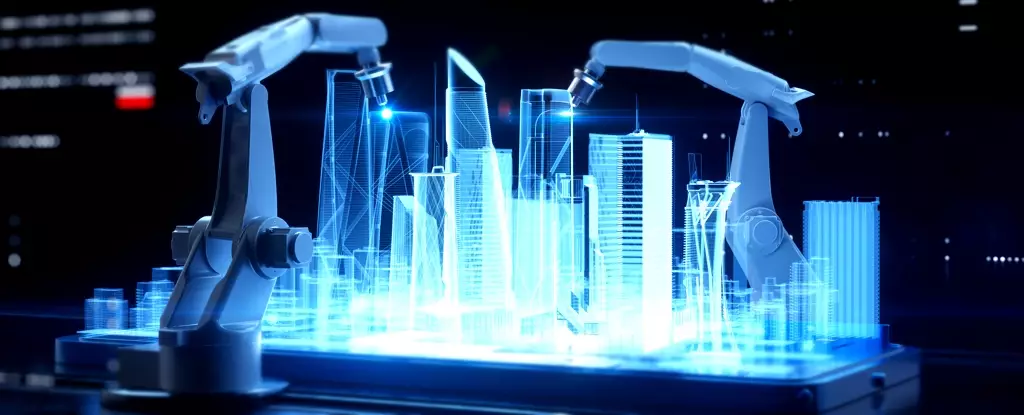As urbanization continues to shape the world, the need for innovative urban planning solutions becomes increasingly apparent. The concept of the 15-minute city, where all essential services are within a short distance, has captured the imagination of urban planners worldwide. The integration of artificial intelligence (AI) into this vision holds the potential to revolutionize urban planning by offering more efficient spatial layouts in a fraction of the time. Researchers at Tsinghua University in China have demonstrated the power of AI in generating urban plans that outperform human designs in terms of access to services, green spaces, and traffic levels. In this article, we explore the implications of this groundbreaking study and the role of AI in shaping the cities of tomorrow.
The researchers at Tsinghua University developed an AI system to address the tedious and computational aspects of urban planning. By leveraging machine learning and neural networks, their model was able to generate optimized road layouts and land use patterns for urban areas. The initial focus was on designing small urban spaces, but the researchers acknowledge the need to scale up the system for larger city planning. While designing an entire city would undoubtedly be a complex endeavor, automating certain aspects of the planning process could result in significant time savings. Notably, the AI model accomplished tasks that would typically take human planners up to 100 minutes in a matter of seconds.
Rather than replacing human planners altogether, the researchers envision AI as an assistant to urban planners. The AI system would generate concept designs that are then reviewed, adjusted, and evaluated by human experts based on community feedback. This collaborative process ensures that the designs account for the unique needs and preferences of the local population. As Massachusetts Institute of Technology (MIT) research scientist Paolo Santi highlights, urban planning goes beyond mere allocation of space – it aims to create vibrant communities where people can live, work, and thrive. Integrating AI into the workflow can enhance the efficiency and effectiveness of urban planning without compromising the human touch.
By analyzing the collaborative approach, the researchers discovered several benefits of integrating AI into the urban planning process. Access to basic services and parks increased by 12% and 5%, respectively, compared to human-only designs. This demonstrates the AI system’s ability to optimize spatial layouts and improve the availability of essential amenities. However, it is important to note that community feedback and expert evaluation remain critical components of the decision-making process.
While the study showcases the immense potential of AI in urban planning, it also acknowledges the challenges of scaling up the system. The complexity of designing larger urban areas necessitates a more intricate decision-making process. Each additional block multiplies the number of planning decisions, and ensuring that the AI system can handle this level of complexity is crucial. Furthermore, the true measure of success lies in the long-term impact on the communities built from these plans. Reductions in noise, heat, and pollution, along with improvements in public health, will ultimately determine the effectiveness of AI-integrated urban planning.
The integration of AI into urban planning represents a revolutionary leap forward in creating sustainable, accessible, and vibrant cities. The study conducted by researchers at Tsinghua University demonstrates how AI can outperform human designs in terms of access to services, green spaces, and traffic levels. By functioning as an assistant to human planners, AI has the potential to streamline the planning process and free up time for more creative and human-centric tasks. However, careful consideration must be given to the scalability of AI systems and the importance of community engagement. As we navigate the future of urban planning, harnessing the power of AI will undoubtedly play a pivotal role in shaping the cities of tomorrow.


Leave a Reply